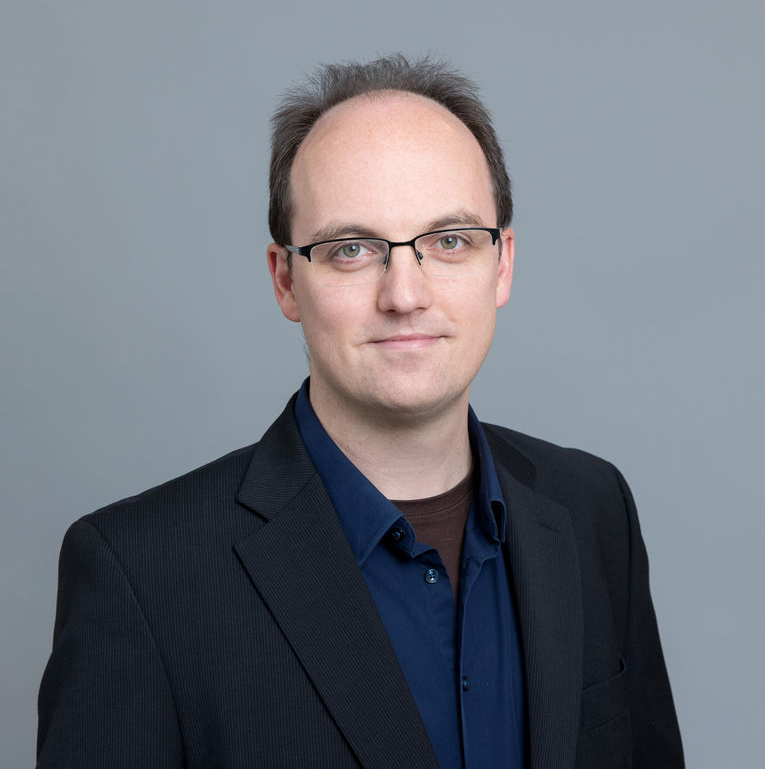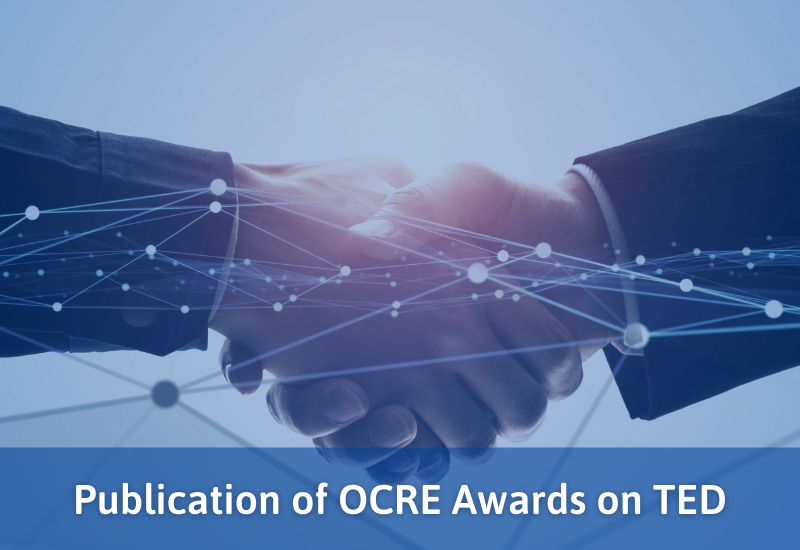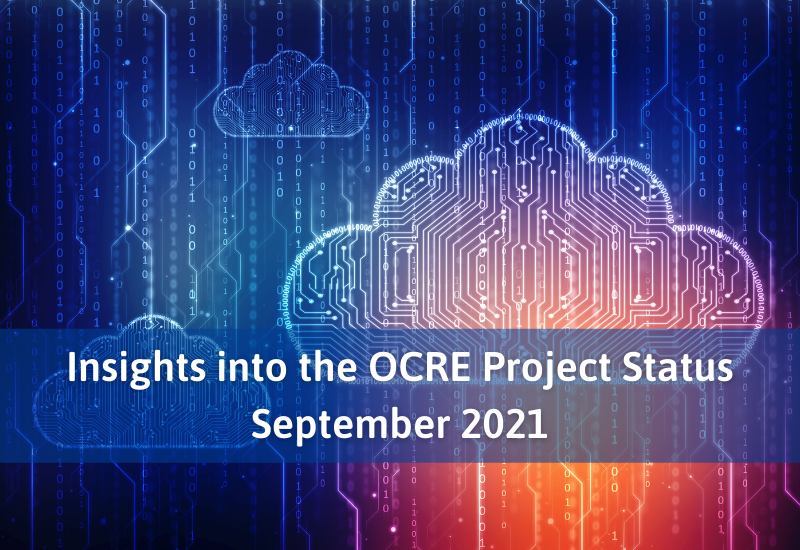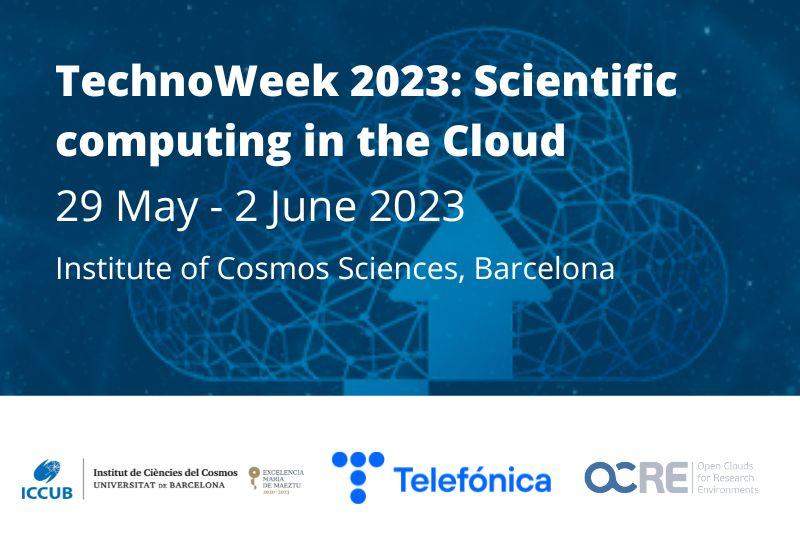
September 14,2021
Insights

The OCRE Project had the opportunity to sit down and chat with Carsten Thiel, CTO of the Consortium of European Social Science Data Archives (CESSDA), about Commercial Cloud in academic archiving services.
Over this short series of blog posts, we will learn what Carsten Thiel had to say about the challenges for data archiving and reuse, some misunderstandings, and the real benefits of Commercial Cloud solutions for researchers.
Commercial Cloud’s Real Benefits
So far we have explored some of the challenges for archivists  and researchers of using Commercial Cloud Services. Data can be sensitive and there can be concerns about privacy. In these cases a European, public funded solution is often preferred.
and researchers of using Commercial Cloud Services. Data can be sensitive and there can be concerns about privacy. In these cases a European, public funded solution is often preferred.
But even if Commercial Cloud is not a solution for every single case, it has the potential to transform European research. Universities and other research institutions usually don't have the infrastructure to offer services equivalent to those that can be purchased on the open market. Carsten Theil from CESSDA has been observing these trends in his role as Chief Technology Officer in a research services providing organisation.
"We're seeing more and more a move away from in-house data centres because of capacity issues and because of problems in hiring personnel. If you want a standard solution like Kubernetes, if you are running it yourself, the overhead you're creating with that is usually not even worth it."
But it’s not always easy to change the way we do things. Many researchers continue to rely on the in-house data infrastructures of their universities.
"It boils down to lots of history. There are physical infrastructures, and 'this is the way we've always done it' in many institutions. But we're seeing that more institutions are realising that this also has its problems. Because if you have a network issue in your building that needs addressing, then everything goes down for a while, and everybody starts panicking.
Whereas if you can blame an external contractor, that changes the dynamic a bit. And depending on who your contractor is, the chances of that happening are also possibly different. So far, we've never had any problems with GCP (Google Cloud Platform) that we didn't ultimately cause ourselves."
Commercial Cloud services have a number of features that, at this moment in time, separate them from their public counterparts.
There is the reliability mentioned above, but it is also easy to start using them. When CESSDA started using GCP, all they needed was a credit card. They were able to pay for just the services and storage they needed and easily adjust as their demands grew or changed. GCP is also easy to use for the system administrators in the organisation and maximises efficiency.

"The experience we're having is that the commercial solutions are very good at giving you excellent documentation so that you don't have to contact their support. Whereas if I want to use solutions within EOSC, it often starts with ‘let's have a number of meetings to discuss what you want.’
I can also say, from experience, that our developers and system admins prefer the former. They're happy to read the documentation for half an hour and figure out what's going on and what they have to do instead of having to wait three days to have a 20 minute video conference, to then find out which document to look at and have to exchange a number of emails afterwards."
So Commercial Cloud Services work, are reliable and easy to use. Implementing these solutions would lead to better research outcomes for many researchers and institutions. So what’s stopping them?
"There's hesitancy in procuring services. People are afraid of big procurements, of not doing them correctly, and so on. They need to find the right supplier but also follow all the rules. And I think this is where OCRE is a very, very good initiative. So that's why we were very happy to join the programme."
OCRE has already successfully run a pan-European tender, establishing 474 framework agreements in 40 countries that meet the specific requirements of the research community. This saves institutions from doing this complex and time consuming process individually, and allows them quick and easy access to these commercial services.
Browse the OCRE Cloud Catalogue here to find the right solution for your institution:
Visit the OCRE Cloud Catalogue
You can learn more about how Commercial Cloud Services have helped researchers here:
About Carsten Thiel
 Carsten Thiel is Chief Technical Officer (CTO) at CESSDA ERIC, the Consortium of Social Science Data Archives, at its main office in Bergen, Norway. He is charge of CESSDA's technical roadmap and strategy and the infrastructure's interoperability within the EOSC, including the SSHOC cluster project, which is coordinated by CESSDA. Carsten has previously worked at the University of Göttingen as Technology Coordinator and Co-Manager for the DARIAH-DE research project and worked with DARIAH ERIC on its EC funded projects. He holds a PhD in Mathematics from University of Magdeburg. His research interests include digital research infrastructures, distributed development processes and the DevOps approach to infrastructure management.
Carsten Thiel is Chief Technical Officer (CTO) at CESSDA ERIC, the Consortium of Social Science Data Archives, at its main office in Bergen, Norway. He is charge of CESSDA's technical roadmap and strategy and the infrastructure's interoperability within the EOSC, including the SSHOC cluster project, which is coordinated by CESSDA. Carsten has previously worked at the University of Göttingen as Technology Coordinator and Co-Manager for the DARIAH-DE research project and worked with DARIAH ERIC on its EC funded projects. He holds a PhD in Mathematics from University of Magdeburg. His research interests include digital research infrastructures, distributed development processes and the DevOps approach to infrastructure management.



